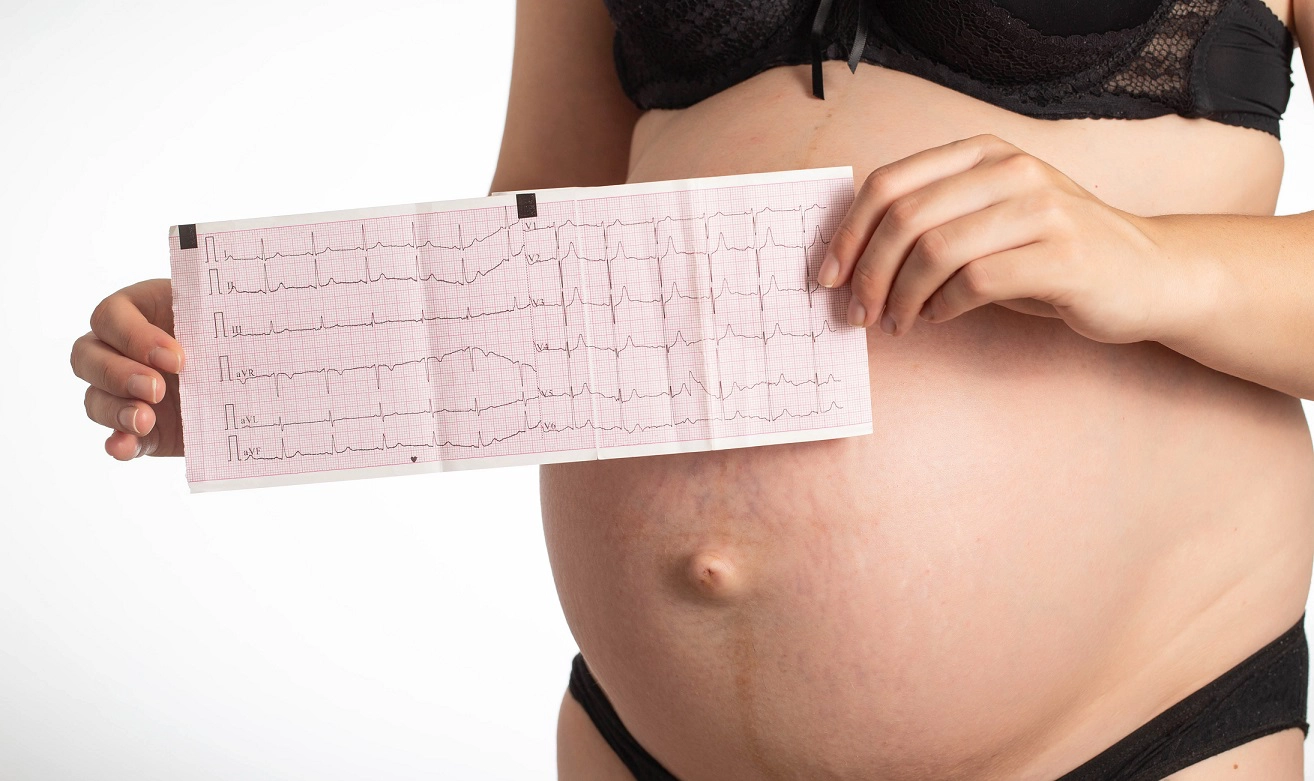Many different types of symptoms occur during pregnancy. Some of them are physiological pregnancy symptoms, while others require a visit to a specialist. One of the most common reasons for visiting a cardiologist during pregnancy is palpitations, which can be a symptom of cardiac arrhythmias. Learn how heart arrhythmias are treated during pregnancy.
Why do cardiac arrhythmias occur during pregnancy?
Arrhythmias, i.e. cardiac arrhythmias of various kinds, can occur at any time in a person’s life. In pregnant women, they usually occur first due to physiological changes in the mother-to-be’s body. It can also occur in women who have had a heart defect before, but it was not accompanied by symptoms. It is important to know that many changes take place in the mother-to-be’s body during pregnancy. These do not leave the cardiovascular system unscathed. The circulating blood volume and the cardiac output increase and the blood pressure decreases. The heart rate also increases by about 15 beats per minute. Hormonal changes and the effect of oestrogen and progesterone can influence the occurrence of cardiac arrhythmias.
Symptoms of cardiac arrhythmias in pregnancy
The physiological acceleration of the heart itself is felt by many women as palpitations that make them anxious. Arrhythmias can also manifest as additional agitation or sudden acceleration and deceleration of the heartbeat. They may be accompanied by chest pain or shortness of breath. Dizziness or fainting are also symptoms that require an immediate visit to a cardiologist or emergency room. It is important to know in which situations palpitations occur and with what frequency such disorders occur.
Treatment of cardiac arrhythmias in pregnancy
If symptoms of cardiac arrhythmia occur, the first step is to consult a cardiologist. He will not only examine the expectant mother, but also perform an ECG, which can give information about the type of arrhythmia, and an ECHO examination of the heart. Sometimes, when the attack passes, a 24-hour measurement, called a Holter ECG, is needed to record the timing of the arrhythmia. If palpitations occur, the expectant mother should also have laboratory tests for thyroid hormones and electrolyte levels. Hyperthyroidism or ion disturbances can manifest as arrhythmias. In most cases, no further care or treatment is needed in pregnant women. However, sometimes pregnancy worsens pre-existing cardiac arrhythmias and special care is needed until delivery. It may be necessary to start treatment with beta-adrenolytics (known as beta-blockers), which are the first choice for this type of condition.
The good news is that most benign cardiac arrhythmias in pregnancy do not pose a risk to the pregnant woman, the course of the pregnancy or the birth itself. However, the expectant mother should be seen by a gynaecologist and a cardiologist, and the delivery should take place in a hospital with cardiology facilities if necessary.











